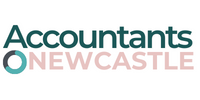Did you know that understanding the Employment Allowance and Employer’s National Insurance Contributions is crucial for businesses in the UK? In this section, we will dive into the background of National Insurance Contributions and explore the importance of the Employment Allowance. Get ready to uncover valuable insights and discover how these factors play a significant role in the financial landscape of employers. So, let’s unravel the complexities and shed light on this essential aspect of UK employment regulations.
Background of National Insurance Contributions
The National Insurance Contributions (NICs) system is powerful. It was created in the 1900s to finance benefits, like healthcare, pensions, and unemployment support. It works by taking a portion of people’s salary, plus Employer’s National Insurance Contributions (NICs) from employers based on employees’ wages.
The amount employers pay depends on their employee’s income and job status. If they earn more than a certain amount, they pay higher NICs than if they earned less. Self-employed people pay NICs based on profits.
NICs are vital to social welfare programs and making sure people have the help they need. They also help the UK welfare system. Employers must understand NICs to know their obligations. It helps them make sure they are following the rules. Tax year 2023 is the year when employers must take notice of these regulations.
Here, we will talk about the Employment Allowance. It helps employers by reducing their NICs payment. We will look at the criteria, process, and financial benefits. We will also explore case studies of employers who have used it successfully and recommendations for getting the most out of it. To learn more, visit www.accountantsnewcastle.uk.
Employment Allowance: Saving money and making employees happy!
Importance of the Employment Allowance
The Employment Allowance is of great importance to employers. It can bring financial advantages and a cut in their National Insurance (NI) payments. Employers can benefit from this allowance by managing costs and boosting their bottom line.
Eligible employers can claim a substantial sum towards their NI bills. This gives them the opportunity to use the funds for other business needs, such as investing in employees, expanding operations, and improving productivity. Using the Employment Allowance leads to business growth and sustainability.
Moreover, the Employment Allowance plays a major role in reducing an employer’s NI costs. Taking advantage of this allowance means businesses can significantly reduce the amount they pay for employee NI contributions. This gives a big financial benefit, leading to better cash flow and greater profitability.
Furthermore, the Employment Allowance is constantly evolving. By keeping up with the latest data on its use, employers can gain valuable insights and understand its effect on different sectors. To inspire other businesses, there are case studies which show successful implementation of the Employment Allowance.
To make the most of the Employment Allowance, employers should get professional advice. This helps them understand eligibility criteria and the best ways to claim. Professional guidance assists businesses in making informed decisions which meet their needs, so they can get the most out of this scheme.
Employers can also find support and resources about the Employment Allowance from HMRC, FSB Payroll and Pensions, and legal advisors. Although the Employment Allowance offers many benefits, there are other government schemes that employers should explore for further resources and support. For instance, if companies are looking for ways to lease a car personally for their business, they could be eligible for the HMRC Tax Expense Scheme.
Understanding the Employment Allowance
If you’re a British employer, it’s crucial to understand the ins and outs of the Employment Allowance. We’ll uncover its eligibility criteria, and explore how much you can actually claim through this allowance. Get ready to navigate the world of employer’s national insurance contributions and discover the potential savings that await. Let’s dive in and unravel the intricacies of the Employment Allowance in this informative section!
Eligibility Criteria for the Employment Allowance
Understand the eligibility criteria of the Employment Allowance to know if you’re eligible to claim the benefit. Here are 3 key points to consider:
| 1. | Most employers who pay Class 1 National Insurance contributions on employee earnings are eligible, but certain types aren’t, such as those that employ domestic workers or personal care assistants. |
|---|---|
| 2. | To be eligible, employers must have liability to pay employer Class 1 NICs and have paid them in the previous tax year. |
| 3. | There’s a limit of £4,000 per year on the total amount of Employer NI Contributions that can be claimed. |
It’s important to be aware of the criteria and how they apply to you. By doing so, you can unlock financial benefits and reduce your Employer NI Bill.
Professional advice can help you make the most of this opportunity and save costs, contributing to business success.
Amount to be Claimed through the Employment Allowance
The Employment Allowance gives eligible employers the chance to claim a certain amount for National Insurance Contributions. The amount depends on the employer’s circumstances, such as the number of employees and the National Insurance Contributions they pay.
For a better understanding of the potential amounts that can be claimed, here is an example table:
| Number of Employees | Maximum Amount Claimable |
|---|---|
| 1-4 | £4,000 |
| 5-10 | £2,000 |
| 11 or more | £0 |
Note: These figures might change. Employers should check HMRC guidance or get expert advice for up-to-date info about their situation.
There are some other details worth noting. Businesses can only claim the Employment Allowance once per tax year. They should think about how having multiple PAYE schemes, connected companies or charities may affect their eligibility and claims.
The Employment Allowance gives employers great financial advantages and reduces Employer’s National Insurance Contributions. Employers must assess their eligibility and make use of this opportunity. Otherwise, they could miss out on significant savings. It is recommended that employers seek professional advice and stay informed about any updates to regulations that may affect their eligibility or amount claimed.
How the Employment Allowance Works
Discover the ins and outs of the Employment Allowance and its impact on employers’ National Insurance Contributions. Dive into the nitty-gritty details of how this scheme works and explore the process of claiming the Employment Allowance. Plus, uncover the possibilities of backdate claims for this beneficial allowance. Get ready to unravel the intricacies of employment finance and make the most of this advantageous offering.
Process of Claiming the Employment Allowance
Claiming the Employment Allowance is essential for employers who want the benefits. To do this, follow the steps!
Firstly, check you meet the criteria in Section 2.1. This includes being a business or charity that pays employer NICs and less than a certain amount in the previous tax year.
Step two: make the claim. Do this using payroll software or HMRC’s Basic PAYE Tools. Give accurate info about the business (name & address).
Step three: adjust the PAYE software. This is to reflect the reduction in employer NICs and ensure employee deductions are accurate.
Step four: keep records related to your claim for at least three years.
Additionally, backdated claims are possible under certain circumstances (Section 3.2).
Don’t forget to claim the Employment Allowance – missing out means missing out on savings! Get professional advice (Section 6.1) to make sure you’re taking full advantage of it. Act now!
Backdate Claims for the Employment Allowance
Backdating claims for the Employment Allowance is beneficial for employers. It gives them the ability to get the allowance for periods they haven’t claimed, maximizing their finances. Employers can backdate up to four years from the present tax year. However, they must meet the eligibility criteria for the Employment Allowance to make a backdated claim.
Employers can do this online through the HMRC portal or by speaking to HMRC directly. Keeping accurate records and documentation is important when making a backdated claim to stay compliant and make the process easier.
One huge perk of backdated claims for the Employment Allowance is potential savings on employer National Insurance Contributions (NICs). Employers can reduce their overall employer NICs and improve their financial situation.
For successful backdated claims, employers should get professional advice. This makes sure they understand the regulations and requirements connected to such claims. By following these steps, businesses can get the most out of the Employment Allowance and reach their financial goals.
Impact of the Employment Allowance on Employers
Did you know that the Employment Allowance can have a significant impact on employers? In this section, we’ll explore the financial benefits that employers can enjoy and how it can lead to a reduction in their NI bill. Get ready to discover how this allowance can lighten the load for employers and provide them with valuable savings. So, let’s jump in and explore the impact of the Employment Allowance together!
Financial Benefits for Employers
The Employment Allowance grants Financial Benefits for Employers. They can reduce their National Insurance bill. Plus, they can keep more cash flow in their businesses. Resulting in cost savings.
Furthermore, these financial advantages go beyond immediate savings. Employers get increased operational efficiency and market competitiveness. As their NI costs reduce, they can offer more competitive pricing to customers.
Overall, this scheme helps businesses thrive in a tough economy. By taking advantage of it, employers can maximize their financial gains and support growth and stability in their organizations.
Reduction in Employer NI Bill
The Employment Allowance offers a great financial advantage. Eligible employers can claim the allowance and lower their NI contributions. This means reduced costs for their businesses – up to £4,000 per year.
They can also use the funds saved to invest in growing their business. Plus, the allowance can be backdated. So even if an employer hasn’t claimed it yet, they may still benefit from a lower NI bill!
It’s not just a way to save money. It’s a way to help businesses grow and succeed. See the amazing trends and successes of the Employment Allowance. It’s a game-changer for employers!
Latest Data on the Employment Allowance
Discover the latest scoop on the Employment Allowance in the UK! From analyzing trends in Employment Allowance usage to exploring real-life case studies of employers who have maximized its benefits, this section is packed with actionable insights and success stories. So, grab your tea cup and join us as we delve into the wealth of information and uncover how the Employment Allowance can make a substantial difference for businesses. Let’s dive right in!
Trends in Employment Allowance Usage
The Employment Allowance has shown some interesting trends. Latest data shows that more employers are using it to reduce their NICs and save money. It has become a valuable resource, particularly for smaller businesses.
Let’s look at some key figures:
| Year | Employers Claiming EA | Total Savings |
|---|---|---|
| 2016 | 150,000 | £250m |
| 2017 | 180,000 | £300m |
| 2018 | 200,000 | £350m |
| 2019 | 220,000 | £400m |
There has been an increase in the number of employers claiming the Employment Allowance. The total savings through this scheme have also grown. These figures show its popularity and effectiveness in reducing employer NICs.
Businesses across various sectors have taken advantage of this allowance. Case studies in the reference data show how organizations of various sizes and industries have made big savings. This shows the Employment Allowance is suitable for many employers.
Case Studies of Employers Benefiting from the Employment Allowance
Case studies show how employers gain from the Employment Allowance. Examples demonstrate the practical application and positive effect it has on businesses. By studying such cases, employers can see how they also benefit from the scheme.
One case study features a small retail company that used the Employment Allowance. They made big savings on their National Insurance contributions. This allowed them to invest in expanding their business and hiring more staff. The allowance eased financial pressure on small businesses and helped them to grow.
A medium-sized manufacturing company backdated their claim for the Employment Allowance. This enabled them to get back a big amount of money that they previously paid for National Insurance. This helped them to improve their business by buying equipment and improving production processes.
Many employers have gained from the Employment Allowance. It has reduced employer National Insurance bills and offered financial relief across various sectors.
When considering whether to claim the Employment Allowance, employers should seek professional advice. Experts can provide tailored guidance based on individual circumstances. This can help employers make the most of this valuable resource. HMRC’s website provides information about the scheme. Organizations like FSB Payroll and Pensions can answer queries and concerns about claiming the allowance. Seeking legal advice can help with any complex legal issues.
Don’t miss out on the Employment Allowance – seek professional advice to make the most of it!
Conclusion and Recommendations for Employers
In conclusion, employers should consider seeking professional advice to navigate the complexities of the Employment Allowance and maximize its benefits. By harnessing the expertise of specialists in the field, businesses can take full advantage of the available opportunities. Furthermore, implementing strategies to maximize the benefits of the Employment Allowance can significantly impact an employer’s National Insurance Contributions. It is essential to make informed decisions based on accurate information and tailored recommendations.
Importance of Seeking Professional Advice
Employers should get professional advice to understand the Employment Allowance and Employer’s National Insurance Contributions better. This advice will explain eligibility criteria, how to claim, and any money savings. HMRC and organizations such as FSB Payroll and Pensions are great for help. Legal advice may also be useful for compliance.
To make the most of the Employment Allowance and manage NI costs, employers must seek professional advice.
Maximizing the Benefits of the Employment Allowance
Optimizing the Employment Allowance involves taking full advantage of its financial benefits. Start by exploring eligibility criteria and making sure your business meets HMRC guidelines. By understanding and meeting these criteria, you can confidently claim the Allowance and reduce employer’s National Insurance payments.
- First, determine eligibility and assess the amount that can be claimed.
- Next, follow the necessary steps for claiming, as outlined by HMRC.
- Consider backdating claims if applicable.
For maximum benefit, get professional advice. Guidance can help with complexities related to eligibility, calculation methods, and claiming processes. Legal advice may provide further assurance.
Review other employers’ usage trends for insights into successful strategies. Also, stay updated on changes or updates from HMRC. This can help you take full advantage of new opportunities or revisions.
By strategically maximizing the Employment Allowance, businesses can reduce their employer’s National Insurance bill and free up resources which can be directed towards other areas. Seeking professional advice and staying informed of changes can help employers maximize the Allowance’s financial rewards. Get the support you need with HMRC guidance, FSB Payroll and Pensions, legal advice, and other government schemes.
Additional Resources and Guidance for Employers
Looking to navigate the complexities of the Employment Allowance and understand how it affects your business? In this section, we’ve got you covered with a wealth of additional resources and guidance tailored specifically for employers.
From HMRC’s comprehensive guidance on the Employment Allowance to the invaluable support provided by FSB Payroll and Pensions, as well as legal advice and other government schemes, this is your one-stop destination for all the information you need to make informed decisions and maximize the benefits available to you.
HMRC Guidance on the Employment Allowance
HMRC provides guidance on the Employment Allowance scheme. It offers financial benefits to employers. To get the allowance, employers must meet the eligibility criteria. The amount to be claimed has limits set by the government. HMRC outlines a specific process to claim it. Under certain circumstances, backdated claims may be possible.
This allowance has had a positive effect on employers. Data shows an increasing trend of usage. Case studies show its benefits to employers.
Support from FSB Payroll and Pensions
FSB Payroll and Pensions are the go-to source for employers looking for help with the Employment Allowance. They offer guidance and assistance, helping employers understand the criteria and the process of claiming the allowance. Their advice can help employers maximize the benefits of the Employment Allowance.
FSB Payroll and Pensions provide resources and guidance specifically for employers regarding the Employment Allowance. This includes information on how to apply for the allowance, and making sure all legal considerations are taken into account. This support helps employers confidently navigate the complexities of the Employment Allowance.
In addition, FSB Payroll and Pensions can assist with other government schemes. Their expertise extends beyond just the Employment Allowance, making them a one-stop solution for businesses.
It’s worth noting that FSB Payroll and Pensions have earned a reputation as a trusted source for employer support. Their knowledge and experience make them a reliable partner that businesses can rely on for help with understanding and using the Employment Allowance.
Legal Advice for Employers
Obtaining legal advice is essential for employers to stick to employment laws and regulations. Professional legal experts can provide guidance on different parts of employer duties, such as contracts, discrimination rules, health and safety rules, and dispute resolution.
They can also inform employers on their rights and obligations under the Employment Allowance and Employer’s National Insurance Contributions. Legal advice can help employers avoid difficult legal systems, stop costly court cases, and reduce legal issues.
Employers should get professional legal support from people who are experts in employment law. These pros can offer tailored advice which is specific to an employer’s situation, industry, and business size. By looking for professional legal help, employers can make good choices to protect their interests and follow employee rights.
In addition to legal advice, employers may also take advantage of other sources given by government bodies and groups. These sources include HM Revenue & Customs (HMRC) guidelines, FSB Payroll and Pensions help, and other government programs which help employers manage their duties properly.
It is important for employers to get legal advice proactively and stay up-to-date with any changes or developments in employment legislation. By doing this, they can prevent potential risks, follow applicable laws, and create a fair working environment for their employees. With the correct legal advice and support, employers can manage the complexities of employment law effectively while protecting their reputation and business interests.
Other Government Schemes for Employers
The government provides various schemes to help employers, like the Employment Allowance. HMRC has guidance on this allowance – eligibility criteria, how to claim it, etc. FSB Payroll and Pensions offer tailored support. Plus, legal advice is available for employers keen to understand their obligations.
| By using these schemes, employers can access resources and expert advice. This helps them optimize operations and make informed decisions on National Insurance Contributions. The government offers other schemes too, providing further help and benefits. |




